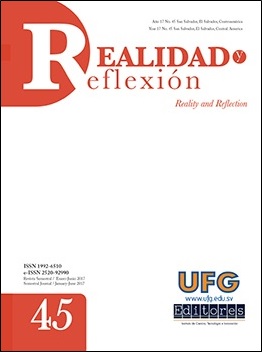Pedagogy in Latin American Penitentiary Institutions: A Hidden Reality
DOI:
https://doi.org/10.5377/ryr.v0i45.4423Keywords:
Penitentiary model, pedagogical practice, social reinsertion, penitentiary institutions, education within the context of incarceration.Abstract
A theoretical and legal overview at the Latin American level shows that there is an interest in the current realities of penitentiary institutions, as well as in the efforts that have been made by each country in the region to meet human rights’ needs. Adequate social reinsertion that lowers new incidences of criminal activity in society is the primordial objective. Moreover, the pedagogical practices carried out during the process of reinsertion into society, which are promoted by penitentiary models, highlights, on the one hand, the intention of governments to improve penitentiary systems. On the other hand, there are many hidden aspects that hinder the understanding of penitentiaries–many of which are not adequately executed. These are due to factors such as the context of incarceration itself, the lack of training of those individuals who are immersed in the system, and the social void left after incarceration, all of which reduce the possibilities of an ideal reinsertion into society. Current studies show, however, that there are penitentiary models rooted in communitybased social pedagogies, which have been applied successfully in certain social contexts, i.e. where there is a need for their implementation using technical analysis, thereby permitting their applicability in other societies with the same or greater urgency for structural change and promoting a more efficient reinsertion. This article considers the method of synthesis of scientific knowledge with a narrative-type vision, which is based on observation techniques and the reading of related bibliographical materials
Reality and Reflection Year 17, No. 45, January-June 2017: 77-92
Downloads
2111
Downloads
Published
How to Cite
Issue
Section
License
© Universidad Francisco Gavidia
Instituto de Ciencia, Tecnología e Innovación (ICTI)
Reality and Reflection
The content and opinions expressed in the publication are the responsibility of the authors of the published articles. The authors assign the publishing and publishing rights, in printed and digital version, to the Universidad Francisco Gavidia.
Proof of originality and assignment of publication rights
The authors must sign a certificate in which they indicate that the text presented for publication is original, unpublished and that it has not been sent for review in another academic publication; In turn, the authors assign the rights of publication and publication to Francisco Gavidia University. The format of this record will be sent through the emails: editores@ufg.edu.sv and jlozano@ufg.edu.sv
The journal Reality and Reflection is housed in the institutional dissemination platforms (web page and in the repository), as well as in databases and other pages of scientific dissemination. The publications of the Francisco Gavidia University are subject to the Salvadoran copyright law, contemplated in the Intellectual Property Law https://www.asamblea.gob.sv/
The content of the work is the sole responsibility of the author, therefore, if for any reason or reason, direct or indirect, the Editor is obliged to pay any compensation to a third party derived from the work of the author, whether it is established in a transaction, agreement or final or enforceable judicial sentence, the Editor may repeat against the Author for the total amount of compensation, plus adjustments, interests and costs that correspond.
It will be the obligation of the UFG to grant five copies of the publication which will be delivered at the UFG Editores headquarters in San Salvador.

